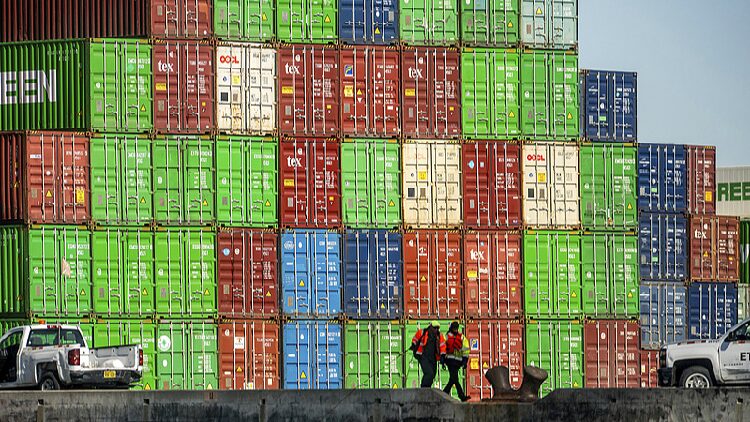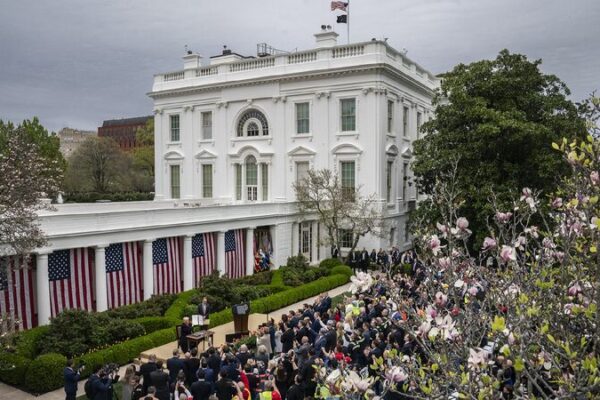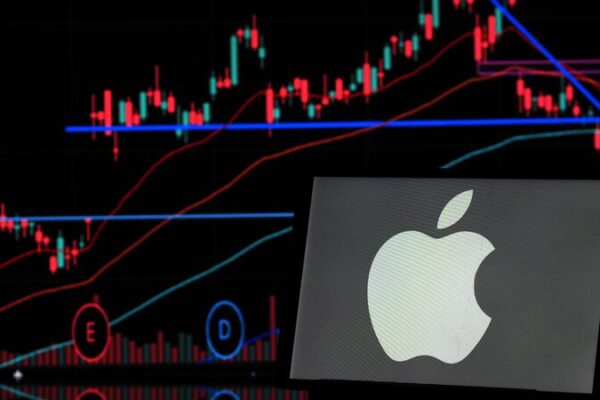Global financial markets tumbled this week as the United States’ new tariff policies ignited sharp sell-offs and provoked a unified international backlash.
Wall Street experienced one of its worst trading days in years. The Nasdaq Composite officially entered bear market territory, declining more than 20% from recent highs. The Dow Jones Industrial Average and the S&P 500 also suffered significant losses, with declines of 9.3% and 10.5% respectively over two days.
Major companies felt the sting. Tech giant Apple, heavily reliant on Chinese manufacturing for products like the iPhone, saw its shares plunge. Retailers like Walmart and Nike were also hit hard by the new tariffs.
The turmoil wasn’t limited to the U.S. Asian and European markets mirrored the downturn, reflecting widespread fears over escalating trade tensions and their impact on the global economy.
International Backlash
The United States’ sweeping new tariffs have drawn fierce criticism from around the world. Many countries have accused Washington of economic bullying, undermining global trade norms, and jeopardizing international cooperation.
In a swift response, China announced a new round of retaliatory tariffs on U.S. goods. Starting April 10, Beijing will impose a 34% tariff on select American imports. Additionally, China will implement new export restrictions on key rare earth elements crucial for advanced manufacturing and technology.
“The U.S. move does not conform to international trade rules, seriously undermines China’s legitimate rights and interests, and represents a typical act of unilateral bullying,” Chinese trade officials said in a statement on Friday.
The European Union, America’s largest trading partner, also voiced strong opposition. European Commission President Ursula von der Leyen condemned the U.S. tariffs and confirmed that the EU has prepared countermeasures, particularly targeting American steel exports.
“There seems to be no order in the disorder, no clear path to the complexity and chaos that is being created as all U.S. trading partners are hit,” von der Leyen said. She warned of “immense consequences,” emphasizing that consumers and businesses worldwide would be negatively impacted.
Allies Voice Disapproval
Traditional U.S. allies joined the chorus of criticism. British Prime Minister Keir Starmer, Italian Premier Giorgia Meloni, and Australian Prime Minister Anthony Albanese expressed disappointment, highlighting the negative implications of a trade war.
“The administration’s tariffs have no basis in logic – and they go against the basis of our two nations’ partnership,” Albanese said. “This is not the act of a friend.”
French President Emmanuel Macron urged European companies to reconsider investment plans in the U.S., while Canadian Prime Minister Mark Carney warned that Canada would take reciprocal measures to protect its economy.
Global Trade at Risk
The international response signals a potentially volatile period for global trade and investment. While the U.S. administration defends the tariffs as necessary to protect domestic industries, analysts suggest that Washington is isolating itself from the global community.
“The international order today, which the U.S. sees as unfair, was formed under its own leadership, and it has been its biggest beneficiary for a long time,” said Wei Nanzhi, a research fellow at the Institute of American Studies, Chinese Academy of Social Sciences.
Cui Fan, a professor at the University of International Business and Economics in Beijing, warned that the tariffs will raise domestic prices in the U.S., burden citizens, and increase costs for companies. “Under the current global value chains, tariffs cannot restore manufacturing to the U.S. homeland,” Cui said.
With policy instability adding to the uncertainty, experts caution that the global trade situation in the near future may continue to deteriorate.
Reference(s):
cgtn.com








